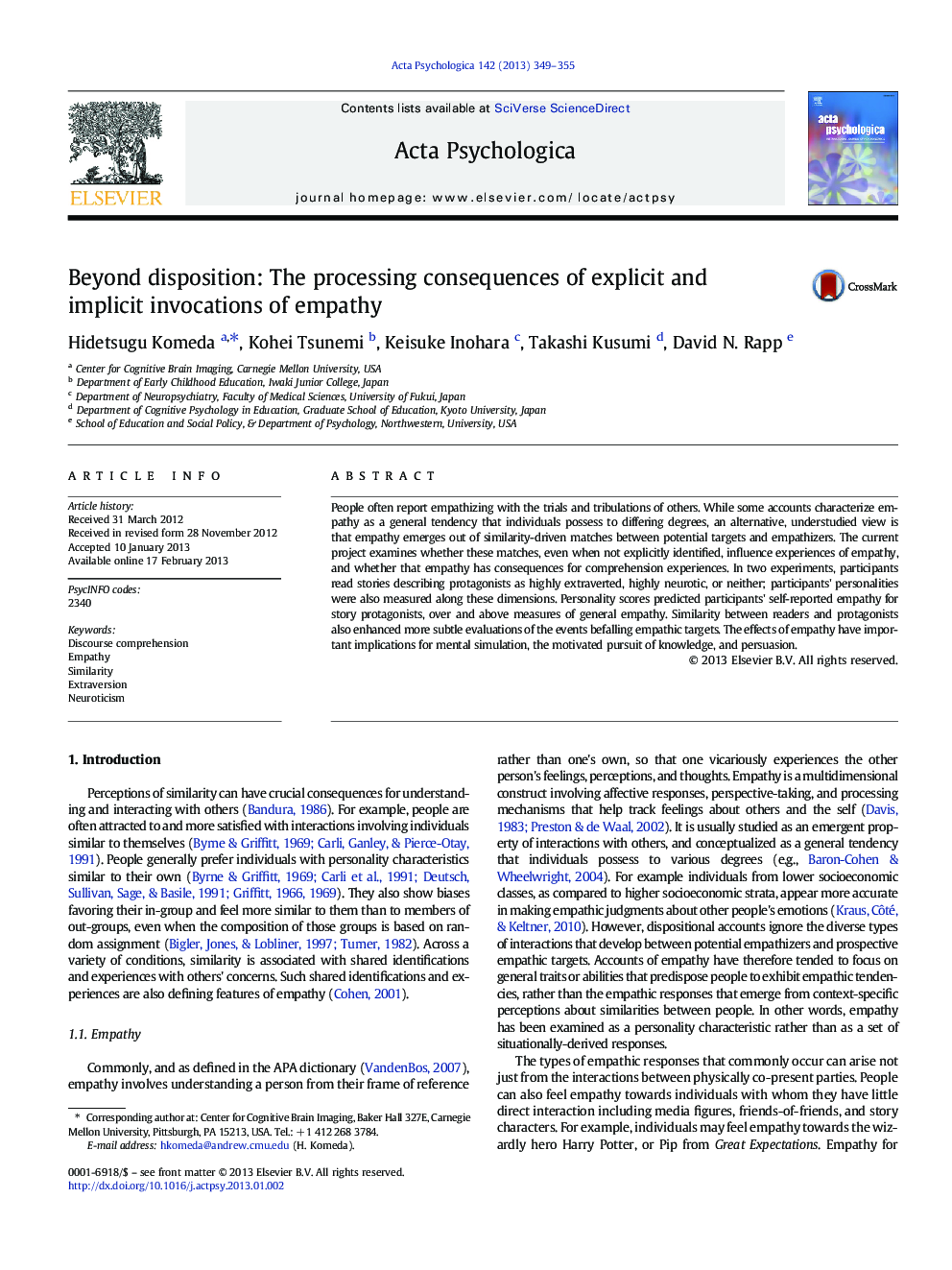| Article ID | Journal | Published Year | Pages | File Type |
|---|---|---|---|---|
| 919818 | Acta Psychologica | 2013 | 7 Pages |
People often report empathizing with the trials and tribulations of others. While some accounts characterize empathy as a general tendency that individuals possess to differing degrees, an alternative, understudied view is that empathy emerges out of similarity-driven matches between potential targets and empathizers. The current project examines whether these matches, even when not explicitly identified, influence experiences of empathy, and whether that empathy has consequences for comprehension experiences. In two experiments, participants read stories describing protagonists as highly extraverted, highly neurotic, or neither; participants' personalities were also measured along these dimensions. Personality scores predicted participants' self-reported empathy for story protagonists, over and above measures of general empathy. Similarity between readers and protagonists also enhanced more subtle evaluations of the events befalling empathic targets. The effects of empathy have important implications for mental simulation, the motivated pursuit of knowledge, and persuasion.
► Personality-driven similarities can instantiate empathic reader responses. ► Similarities influence readers' judgments of empathy and story events. ► Readers' personality traits predicted their empathy for story protagonists. ► Outcome judgments were speeded when readers' and protagonists' personalities matched.
